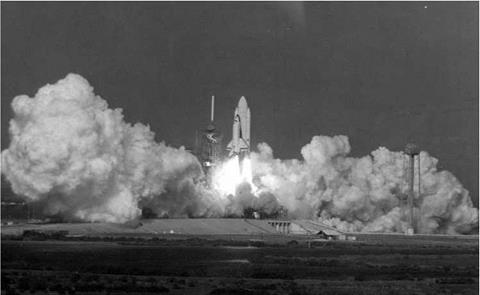STS-2
|
Int. Designation |
1981-111A |
|
Launched |
12 November 1981 |
|
Launch Site |
Pad 39A, Kennedy Space Center, Florida |
|
Landed |
14 November 1981 |
|
Landing Site |
Runway 23, Edwards Air Force Base, California |
|
Launch Vehicle |
OV-102 Columbia/ET-3/SRB A09; A10/SSME #1 2007; #2 2006; #3 2005 |
|
Duration |
2 days 6 hrs 13 min 13 sec |
|
Callsign |
Columbia |
|
Objective |
Second Orbital Test Flight (OFT-2); tests of the Remote Manipulator System (RMS) |
Flight Crew
ENGLE, Joseph Henry, 49, USAF, commander TRULY, Richard Harrison, 44, USN, pilot
Flight Log
As Columbia was being prepared for its second mission, originally scheduled for 10 September then pushed to 30 September, with 1,000 new tiles, new RCS components, an OMS nozzle and fuel cells, nitrogen tetroxide leaked from a ruptured fuel line during propellant loading, damaging another 240 tiles on its nose. The launch was postponed to 4 November. Things looked good but the launch was delayed for 2 hours 40 minutes and finally scrubbed, holding at T — 31 seconds, when an oil flush on one of the APUs failed and a computer malfunctioned. Both had to be replaced before a new launch attempt, eight days later.
The first flight of a re-used manned spacecraft began at 10: 10 hrs local time and astronauts Joe Engle and Richard Truly (marking a space first by being launched on his birthday) were at last on their way, into a 38° inclination orbit which would have a maximum altitude of 219 km (136 miles). A five day flight was on the agenda, with a complement of science experiments and the testing of the Remote Manipulator System robot arm, being carried for the first time. An increase in the alkaline level of the electrolyte in one of Columbia’s three fuel cells spoiled the day for Engle and Truly, who were told to cram five days work into two, as mission rules dictated.
The RMS did not work quite as well as planned since it suffered a back-up drive failure, but TV cameras at its end gave interesting views of the payload bay and other parts of the Shuttle. Engle did not get the chance to try out the Shuttle EVA suit inside the airlock. Mission scientists were pleased with the results from the science experiments, particularly the multi-spectral imaging radiometer and the Shuttle Imaging Radar. Columbia came home on the dry lake bed runway 23 at Edwards Air Force
|
The launch of STS-2 sees Columbia become the first manned spacecraft to return to orbit |
Base, touching down at a speed of 361 kph (224 mph), at T + 2 days 6 hours 13 minutes 13 seconds, main gear touchdown time.
Milestones
82nd manned space flight
33rd US manned space flight
2nd Shuttle flight
2nd flight of Columbia
1st manned space flight by reused spacecraft
Truly celebrates his 44th birthday by being launched into space (12 November)











